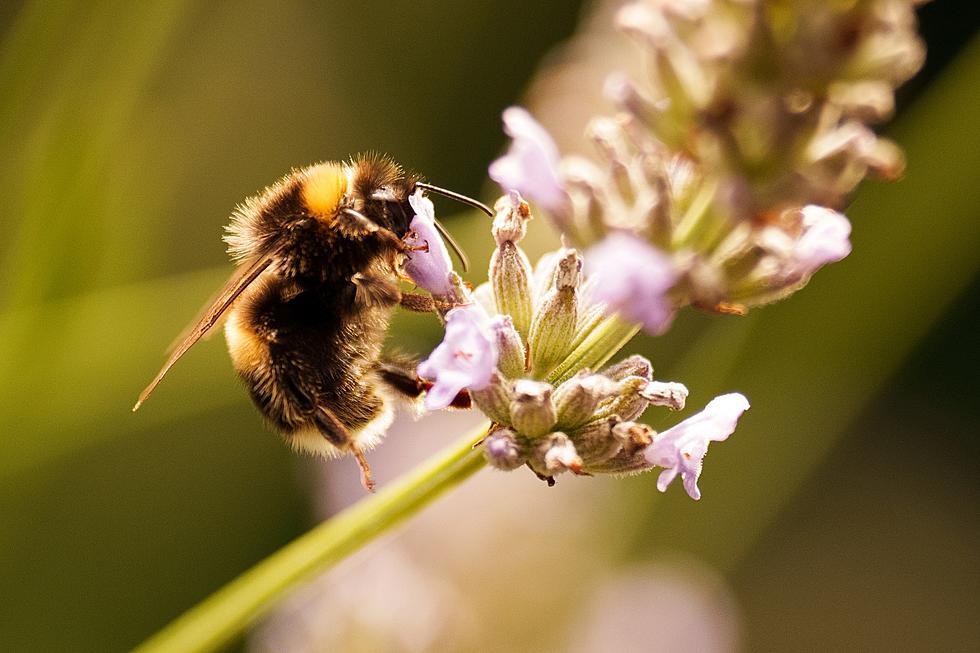
Central NY University’s Breakthrough Bee Research Triggers Rapid Industry Change
A recent study not only discovered a new way to save the lives of wild bumblebees, it's permanently changing commercial beekeeping.
Bumblebee populations in the U.S. have plummeted by roughly 90% since the year 2000, with conservationists pointing the finger at climate change, disease, pesticides and habitat loss.
Cornell University, which is based in Ithaca, recently published a study that identified a new threat -- commercial eastern common bumblebee hives. Apparently, they wreak havoc on the wild bumblebee populations.
Cornell's findings sent shockwaves across the commercial bee industry, which is now rushing to make the necessary changes to protect our wild pollinators.
What the study found
Due to the dwindling number of wild pollinators, the agricultural industry is increasingly depending on commercially reared bees to help with growing their produce or crops to keep up with demand.
According to Cornell researchers, commercial bumblebees that arrive in those brightly-colored hive boxes attract wild queen bees that are searching for a colony to rule.
Unfortunately for these wild queens, commercial hives don't roll out the red carpet and let her usurp their nest. Instead, commercial bees will view the wild queen as an intruder and kill her in an effort to protect the hive.
Study co-author Heather Grab, a senior lecturer in the School of Integrative Plant Science in the College of Agriculture and Life Sciences, explained why this damages the ecosystem and environment:
"For every queen that we’re losing because of this behavior, that’s a whole colony of bumblebees that we’re potentially losing that’s providing really important pollination services later in the season."
Researchers also found that areas that use commercial hives have less pollination services than those that don't have them.
Olivia Miller, a 2021 Cornell graduate who also participated in the research, estimates a single commercial colony kills 10 wild queens on average.
Why are queen bees important?
You can identify a queen bee by her size. She is larger in size and tends to have a longer abdomen than the worker bees of her hive, which gives the appearance she has shorter wings.
Queen bees are vital to the survival of a colony. They are the only member of the hive able to lay eggs, thus maintaining or growing its population. Queens also produce pheromones that let her manage the hive by giving cues to the worker bees.
When a hive loses its queen, it's estimated it only has between six to eight weeks to find and raise a new one before it collapses.
How this study is saving the bees
Cornell researchers found a simple and easy solution that was also 100 percent effective at preventing wild queens from entering a commercial hive. It's called an excluder, which is a device mounted onto a nest box's doorway.
The excluder basically makes an entrance too small for a queen to pass through, but doesn't interfere with the comings and goings of worker bees.
Before this study was published, excluders had an entirely different purpose - they were actually designed to stop a commercial hive's queen from escaping.
Hive boxes have an entrance and exit. So, before this breakthrough research came out, excluders were only used on the exits to prevent commercial queens from flying off and mixing genes with or unintentionally spreading disease to the wild bees.
So, thanks to Cornell, companies that ship bumblebees are starting to use excluders on both the entrances and exits of their hive boxes. The university said Plant Products was one of those companies to make the change because of their study.
The study authors say they're blown away by how quickly the industry responded to their research.
The hope now is this small but important change to commercial boxes, again thanks to Cornell, will ensure the survival of more wild queen bees and slow the steady decline of wild pollinators.
Bee-cause, if wild pollinators go extinct, it would have a catastrophic impact on the availability of food and survival of many species.
If you're interested in reading Cornell's study in full, click HERE.

Move Over Wine! There's a One of a Kind Tasting in the Finger Lakes - Honey
More From Lite 98.7






